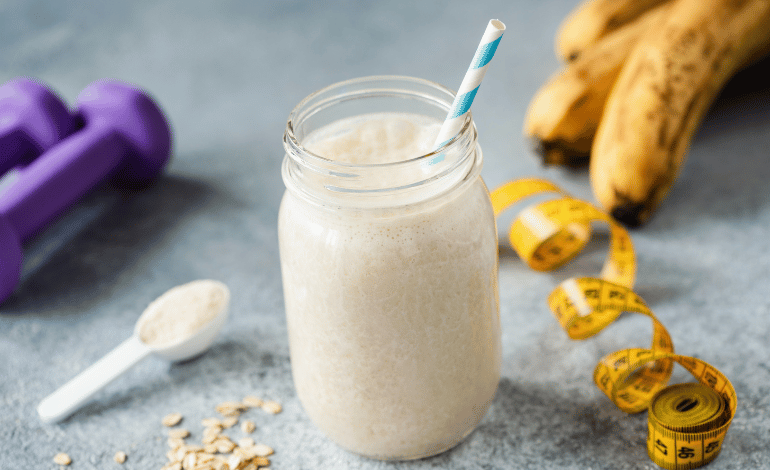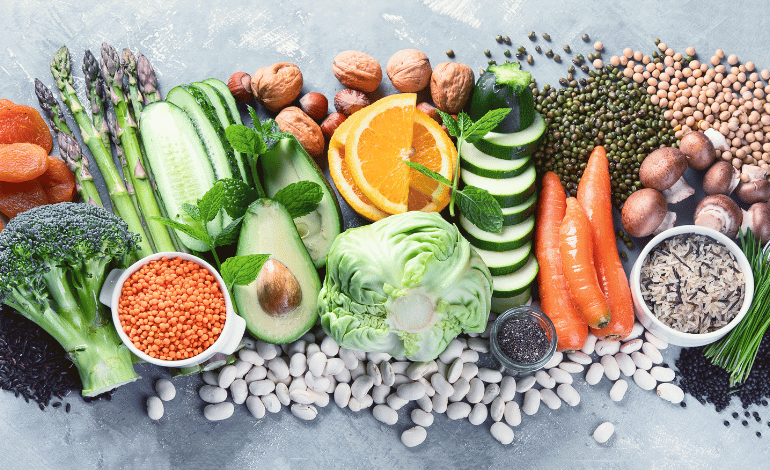Protein Power: Boost Your Metabolism and Lose Weight with These Tips

Protein Power: Boost Your Metabolism and Lose Weight with These Tips: Protein is one of the most important macronutrients in our diet. It plays a vital role in building and repairing tissues, muscles, and bones. However, the power of protein goes beyond just building and repairing tissues; it also has a significant impact on our metabolism and weight loss.
In this article, we will explore the power of protein and how it can be used to boost your metabolism and lose weight.
What is Metabolism?
Metabolism is the process by which our bodies convert food into energy. It is the sum total of all chemical reactions that occur within our bodies to keep us alive and functioning. Our bodies require a certain amount of energy to maintain basic bodily functions such as breathing, circulating blood, and repairing cells.
Metabolism is influenced by several factors such as age, gender, genetics, and lifestyle habits such as diet and exercise. While we cannot change some of these factors, we can control our diet and exercise habits to boost our metabolism.
The Role of Protein in Metabolism
Protein is one of the three macronutrients required by our bodies, along with carbohydrates and fats. It is essential for building and repairing tissues and muscles. Protein also has a thermic effect on our bodies, meaning that it requires more energy to digest and metabolize than carbohydrates and fats.
This thermic effect of protein has a significant impact on our metabolism. When we consume protein, our bodies have to work harder to digest and metabolize it, which leads to an increase in energy expenditure. This increase in energy expenditure can help to boost our metabolism, which in turn can aid in weight loss.
In addition to its thermic effect, protein also helps to preserve lean muscle mass. Lean muscle mass is important for metabolism as it requires more energy to maintain than fat mass. As we age, we tend to lose muscle mass, which can lead to a slower metabolism. By consuming adequate amounts of protein, we can help to preserve lean muscle mass and maintain a healthy metabolism.
How to Use Protein to Boost Your Metabolism and Lose Weight
Now that we understand the power of protein in boosting our metabolism and aiding in weight loss, let’s look at how we can incorporate protein into our diet.
Include Protein in Every Meal
To maximize the thermic effect of protein, it’s important to consume it with every meal. Aim to include a source of protein in every meal, whether it’s animal-based protein like meat, poultry, or fish, or plant-based protein like beans, lentils, or tofu.
Choose High-Quality Protein Sources
Not all proteins are created equal. Some sources of protein are higher in quality than others. High-quality protein sources include lean meats, fish, poultry, eggs, and dairy. Plant-based protein sources like beans, lentils, and tofu are also good options.
Don’t Overdo It
While protein is important for metabolism and weight loss, it’s important not to overdo it. Excessive protein intake can lead to weight gain, especially if you’re consuming more calories than your body needs. Aim to consume around 0.8 grams of protein per kilogram of body weight per day.
Combine Protein with Complex Carbohydrates and Healthy Fats
To create a balanced meal that will keep you feeling full and satisfied, it’s important to combine protein with complex carbohydrates and healthy fats. Good sources of complex carbohydrates include whole grains, fruits, and vegetables, while healthy fats can be found in foods like nuts, seeds, and avocado.
Conclusion
Protein is a powerful macronutrient that can help to boost our metabolism and aid in weight loss. By including a source of protein with every meal, choosing high-quality protein sources, and combining protein with complex carbohydrates and healthy fats, we can create a balanced and nutritious diet that promotes optimal health and wellness. Adequate protein intake also helps to preserve lean muscle mass, which is essential for a healthy metabolism. However, it’s important to consume protein in moderation and maintain a balanced diet to avoid excessive calorie intake, which can lead to weight gain. With these guidelines in mind, incorporating protein into our diets can be a highly effective way to support our overall health and weight management goals.
FAQS
Q1. What are the benefits of protein?
Ans. Protein plays a vital role in building and repairing tissues, muscles, and bones. It also has a thermic effect on the body, meaning it requires more energy to digest and metabolize than carbohydrates and fats. Additionally, protein helps to preserve lean muscle mass, which is important for metabolism.
Q2. How does protein boost metabolism?
Ans. Protein has a thermic effect on the body, meaning it requires more energy to digest and metabolize than carbohydrates and fats. This increase in energy expenditure can help to boost metabolism, which in turn can aid in weight loss.
Q3. What are some high-quality protein sources?
Ans. High-quality protein sources include lean meats, fish, poultry, eggs, and dairy. Plant-based protein sources like beans, lentils, and tofu are also good options.
Q4. How much protein should I consume per day?
Ans. Aim to consume around 0.8 grams of protein per kilogram of body weight per day. However, individual protein needs may vary depending on factors such as age, gender, and activity level.
Q5. Can excessive protein intake lead to weight gain?
Ans. Yes, excessive protein intake can lead to weight gain, especially if you’re consuming more calories than your body needs. It’s important to consume protein in moderation and maintain a balanced diet.








